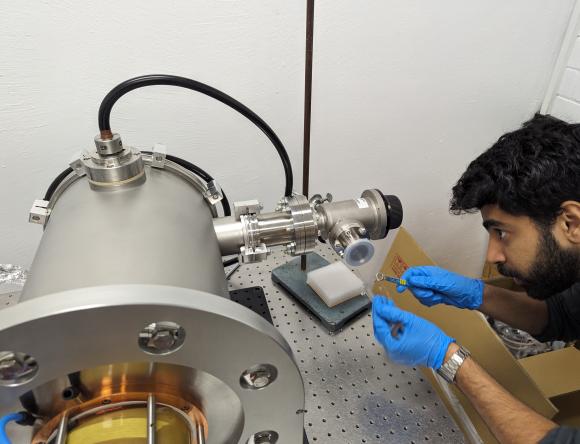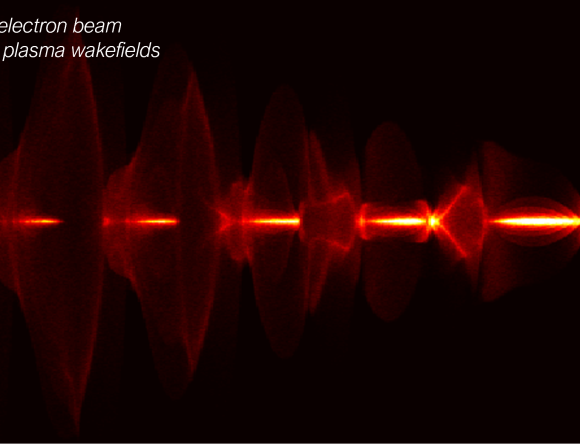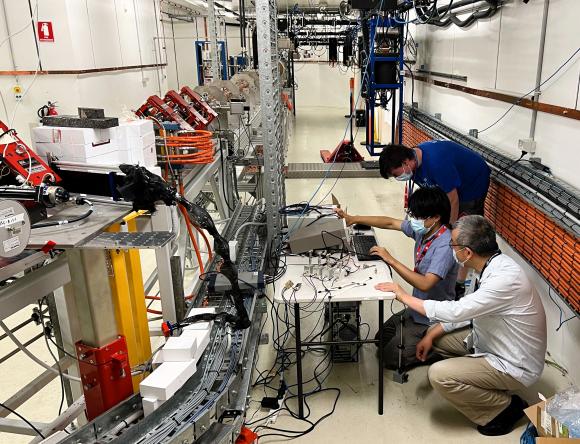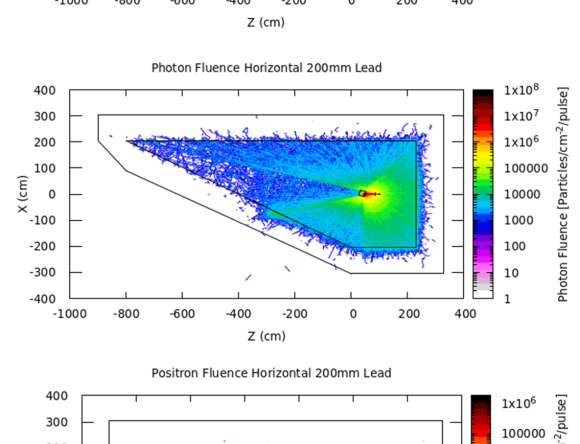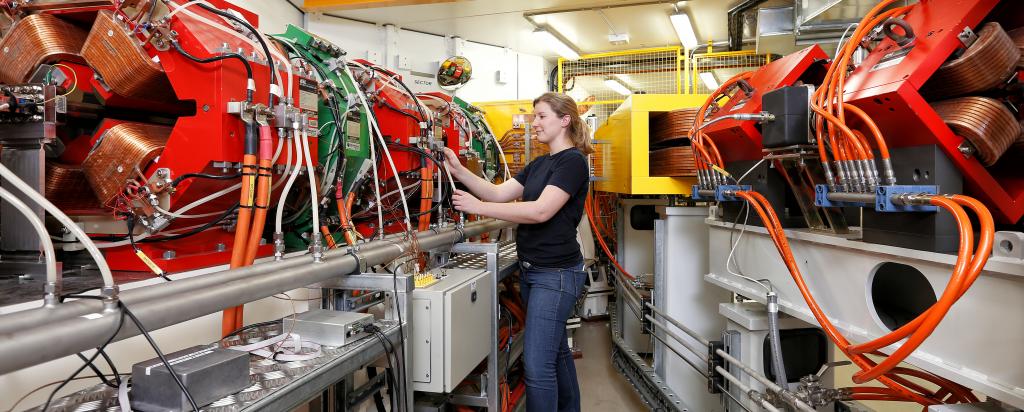
Particle Accelerators
The Accelerator Science and Operations group is responsible for the reliable operation and development of the accelerator systems at the Australian synchrotron. We conduct accelerator physics research with the aim of improving the performance and reliability of our accelerators, increasing their research capabilities and developing the next generation of accelerator technology. The group engages with local Australian accelerator facilities and universities, as well as international accelerator laboratories around the world.
As custodians of the most significant particle accelerator infrastructure in Australia, ANSTO is committed to engaging with universities to train the next generation of accelerator physicists and engineers in Australia. As such we offer a wide range of student projects, ranging from undergraduate to postgraduate level.
The accelerator systems at the Australian Synchrotron include the 100 MeV linac, a 100 MeV to 3 GeV booster synchrotron, and the 3 GeV storage ring. Find out more in the Accelerator Systems Overview ->
Research Program
The Accelerator Science and Operations group pursue and develop a broad range of accelerator technology, with the aim of improving accelerator performance and reliability, increasing the Australian Synchrotron’s research capabilities, and developing the next generation of accelerator technology.
The group has well established and long-term international collaborations. Research outputs include contributions to CERN projects – CLIC, CompactLight and the Future Circular Collider, as well as the International Linear Collider (ILC). Collaborations with international partners have included MAX IV, KEK, Cockcroft Institute, SLAC, SSRF, PAL, LNLS, SOLEIL, and University of Eindhoven.
The group conducts a broad and interdisciplinary research program across three broad themes.
1. Accelerator technique and Beam dynamics
- Impedance and beam instabilities
- Coupling control
- Orbit and lattice control
- Coherent synchrotron radiation
- Machine learning for accelerator optimisation and operation
2. Instrumentation and detectors
- Orbit measurements and feedback
- Beam diagnostics
- Beam Loss monitors
- VHEE dosimetry
3. Next generation accelerators
- New ring lattices – 4th generation storage rings
- X-band / CLIC RF test modules
- Beam dynamics simulations and design for CompactLight
- Damping ring design for the International Linear Collider (ILC)
- Optics corrections for the e+/e- Future Circular Collider (FCC-ee)
- Magnet Alignment and Coupling Control for future colliders
Find out more about Australian Accelerator Reserach
The Australian Collaboration for Accelerator Science (ACAS) provides a platform for accelerator science research to develop next generation accelerator technology.
Find out moreAccelerator Systems Overview
The accelerator systems at the Australian Synchrotron include the 100 MeV linac, a 100 MeV to 3 GeV booster synchrotron, and the 3 GeV storage ring.
Student Opportunities
Accelerator physics is a rich and rewarding field that calls upon electromagnetism, non-linear dynamics, computational physics, engineering awareness, and more, in the study of how to design, optimise, and operate these high-performance machines.
Accelerator physics is typically not taught at an undergraduate level and so we do not expect prospective student to have direct experience in this area. Instead we encourage applications from students who are interested in the field and offer post-graduate training that includes theory and hands-on experience.
Previous students in the accelerator group have gone on to work at universities, in industry, and at laboratories such as CERN, PSI, Daresbury laboratory, ALS, Diamond Light Source, and the Bragg Institute.
If you are interested in pursing an undergraduate, Honours, Masters, or PhD project in accelerator physics, please read through the list of student projects and reach out to the supervisor listed.
Current projects include beam dynamics, RF, machine learning, impedance modelling, and more, with applications in future light source design, medical accelerators, and accelerator for cultural heritage.
Numerous funding options are available. Students based at most Australian universities and many New Zealand universities working on any of the student projects described, would be eligible to apply for a top up scholarship from AINSE.
Staff
Accelerator Physics
- Dr Rohan Dowd, Manager, Accelerator Physics
- Mr Yaw-Ren Eugene Tan, Senior Accelerator Physicist
- Dr Tessa Charles, Accelerator Physicist
- Dr Frank Zhang, Accelerator Physicist
- Dr David Zhu, Accelerator Physicist
- Mr Karl Zingre, Principal RF Engineer
- Mr Jacky Hou, RF Engineer
- Mr Mark Atkinson, Instrumentation Scientist
Accelerator Operations
- Mr Mike Lafky, Accelerator Operations Manager
- Mr Paul Bennetto, Senior Accelerator Operator
- Mr Simon Cunningham, Senior Accelerator Operator
- Mr Jonathan De Booy, Senior Accelerator Operator
- Ms Louise Hearder, Senior Accelerator Operator
- Mr Nick Rae, Senior Accelerator Operator
- Mr Cameron Rodda, Senior Accelerator Operator
- Mr Joel Trewhella, Senior Accelerator Operator
- Dr Dale Christensen, Accelerator Operator
- Ms Miguela Martin, Accelerator Operator
- Ms Gemma Antonino, Accelerator Operator
